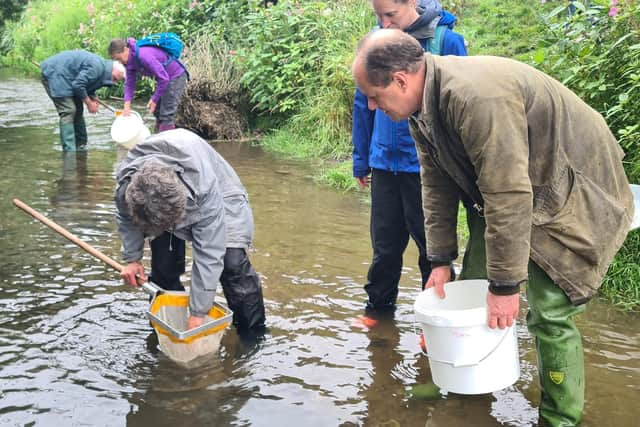Yorkshire Dales Rivers Trust launches new scheme to restore water quality in Harrogate stretch of river Nidd
and live on Freeview channel 276
The news follows an incident on 2016 when Yorkshire Water breached its permittable level of sewage discharge from a combined sewage overflow (CSO) located on Hookstone Beck in Harrogate.
This event led to significant deaths of local aquatic fauna, including fish and invertebrates.
Advertisement
Hide AdAdvertisement
Hide AdNow, in a combined effort by Yorkshire Dales Rivers Trust (YDRT) and partners including Wild Trout Trust (WTT) and Nidd Action Group, the first steps are being taken to ensure the beck is no longer polluted.


Charlotte Simons, senior project manager at YDRT, said they had made an impressive start to their plans to create a programme of restoration to address the pollution incident at the tributary of the River Nidd.
“The £500,000 payment has enabled us to redouble our efforts in monitoring the health of the River Nidd and its tributaries, which will help us target our restoration plan,” she said.
"The appointment of a river enhancement project manager to oversee this Nidd workstream means that we have been able to start building partnerships and are now ready to recruit a cohort of volunteers, who will be specially trained to support the programme.”
Advertisement
Hide AdAdvertisement
Hide AdYorkshire Dales Rivers Trust is undertaking riverfly monitoring which, it says, is a vital tool in establishing the overall health of a stretch of river.
Testing the chemistry of the river water only offers a snapshot of actual pollution levels.
Animals in our rivers respond to water quality throughout their whole life span with many aquatic invertebrates such as caddisfly and dragonfly larvae and nymphs not able to survive in polluted water, so their presence or absence is a very strong indicator of pollution levels.
The Trust is looking for 20 enthusiastic volunteers to take part in their Nidd Riverfly Monitoring Programme
Advertisement
Hide AdAdvertisement
Hide AdThe Trust is also calling on the public to ensure that things like sanitary products, nappies, wipes and fats are not disposed of down toilets or drains, as they simply end up in our rivers.
More information: https://www.ydrt.org.uk/